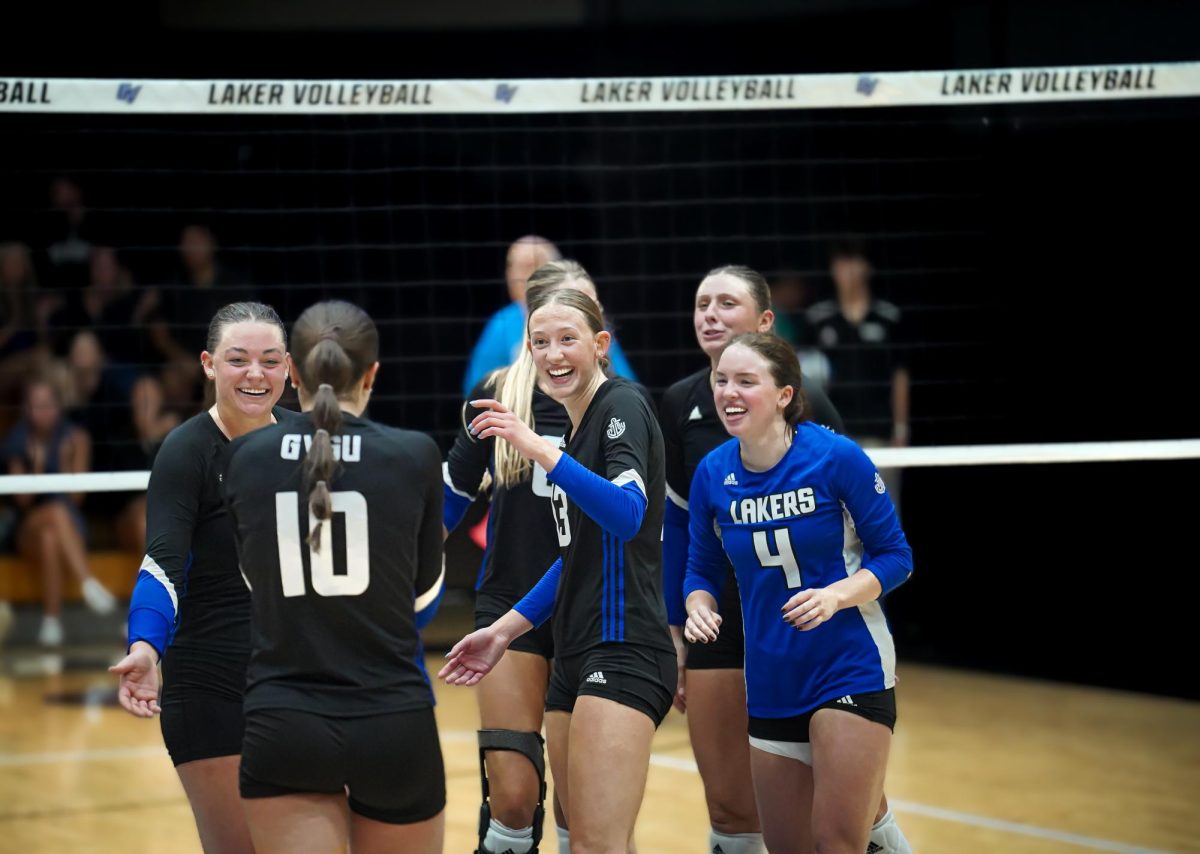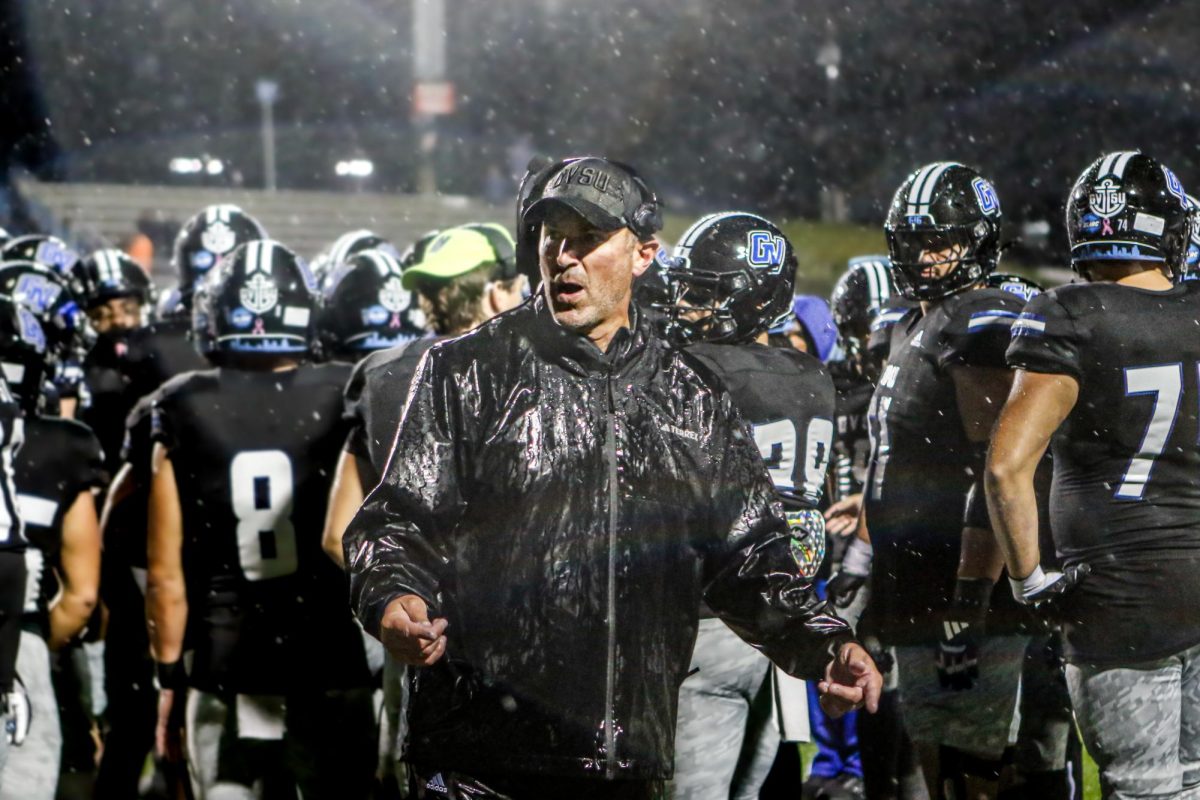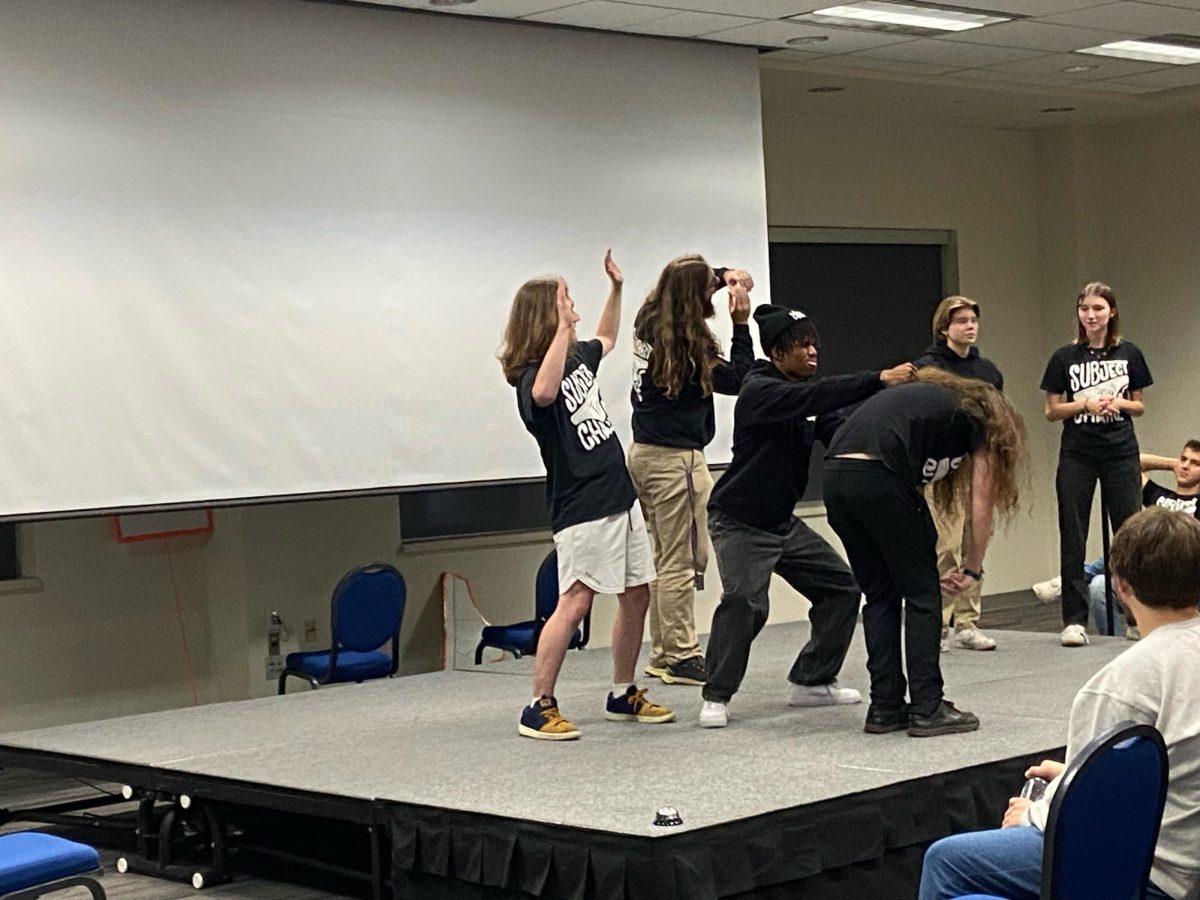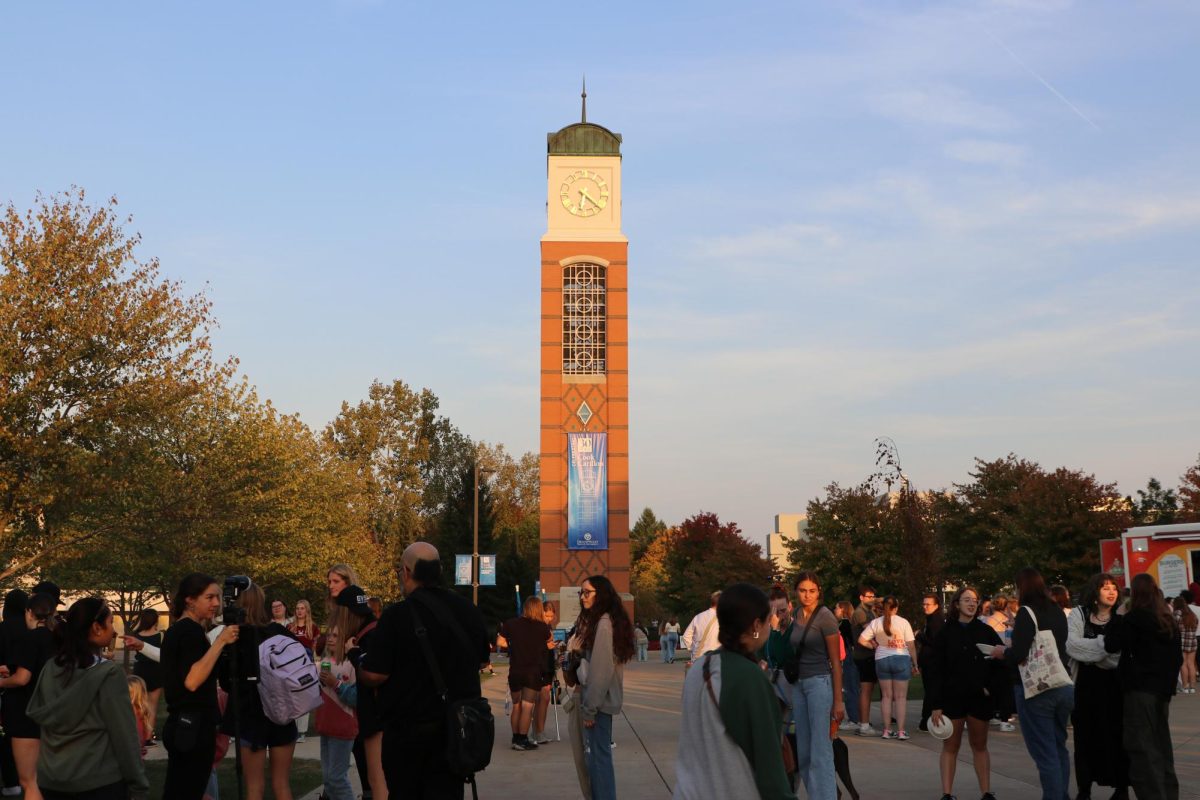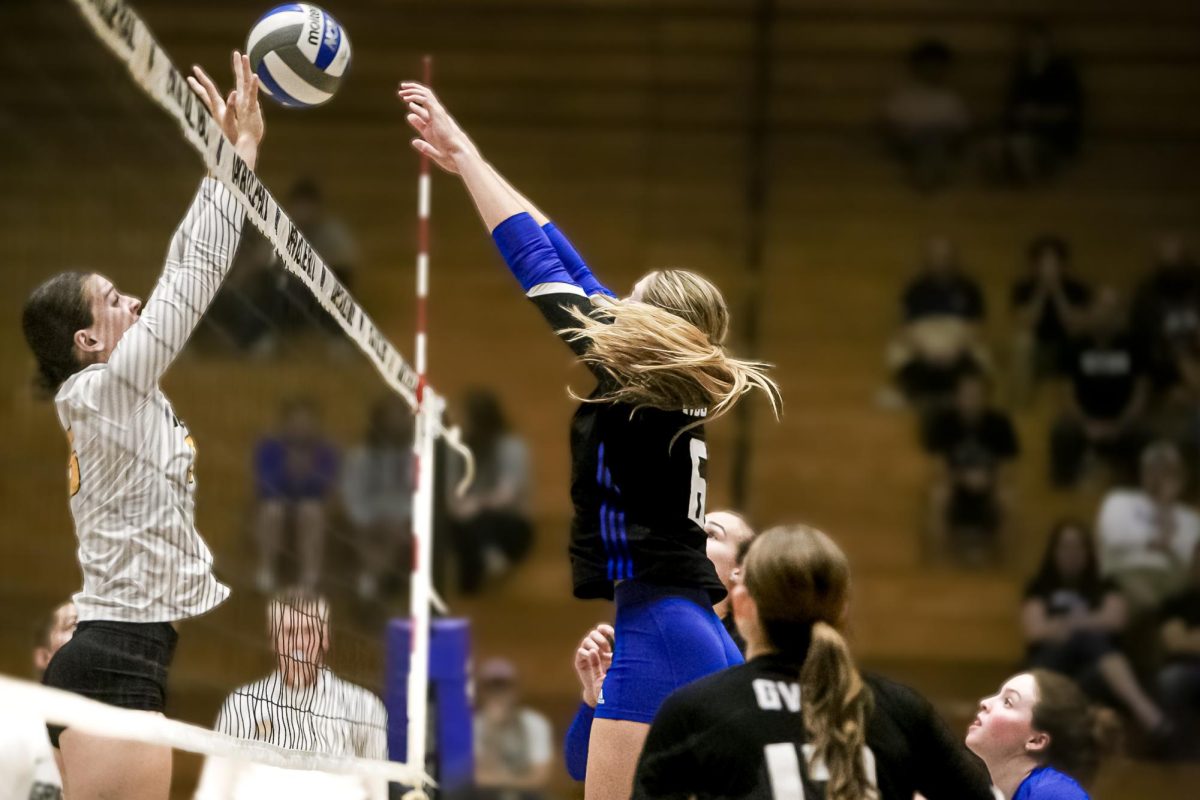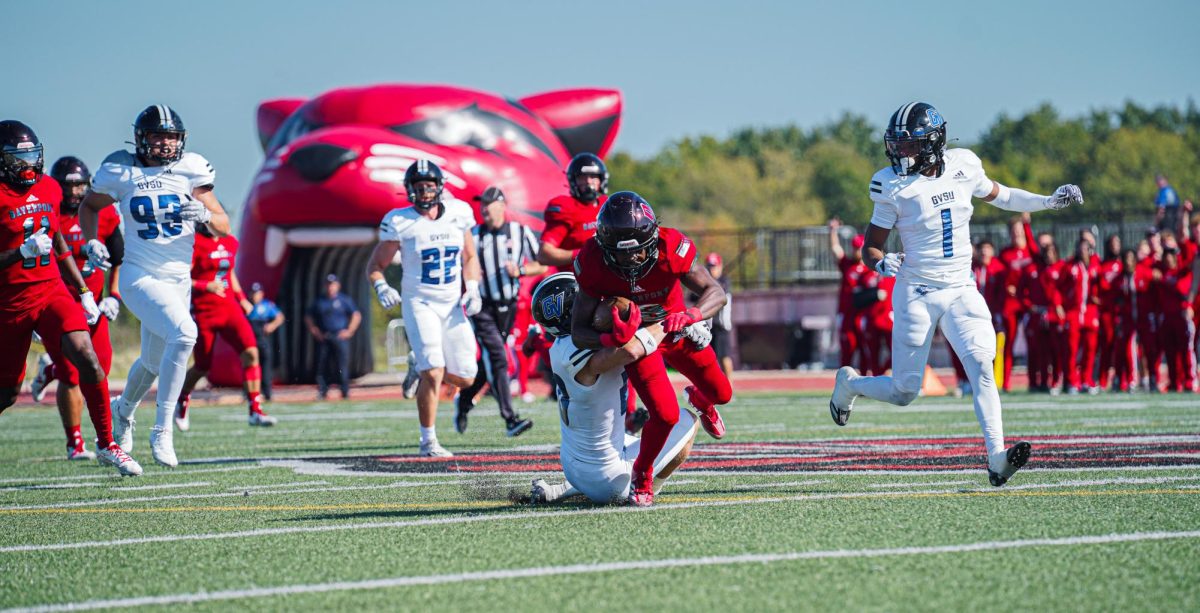Provost’s office pulls 136 winter semester classes
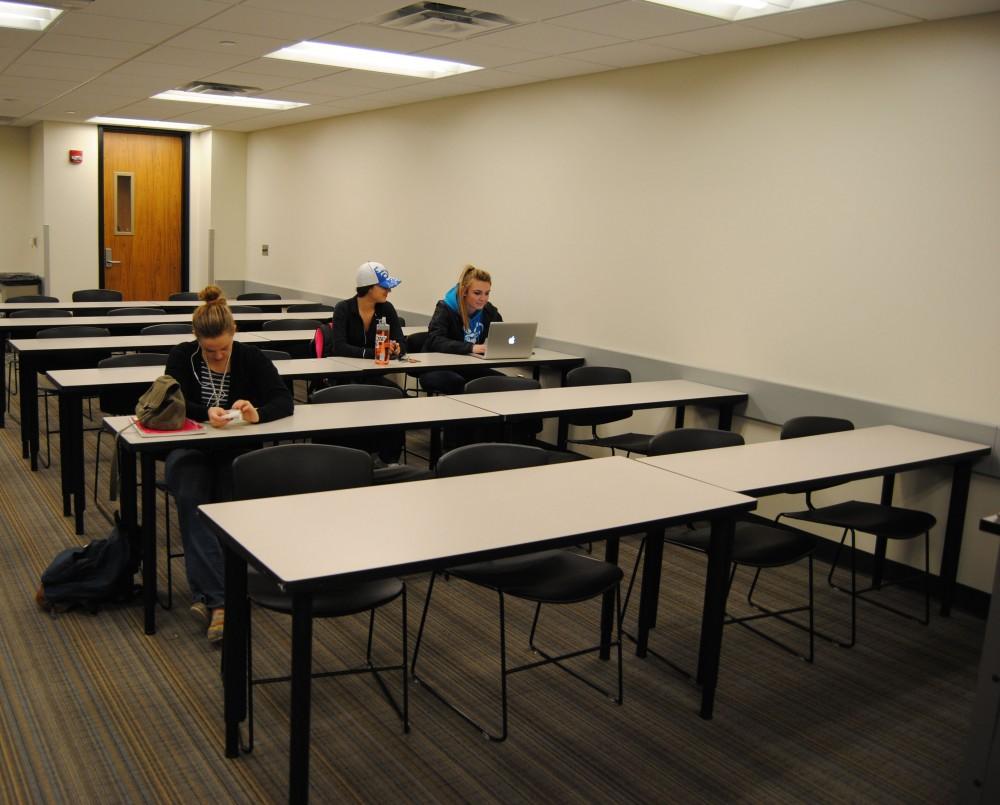
GVL / Brianna Olson Karlee Tykosky, Jade Hanson, Stephanie Schindler
Nov 6, 2014
Scheduling classes is a daunting task that requires extreme thought and consideration. However, after figuring out just how to organize a schedule without Friday or morning classes and extra time for napping, two words a student does not want to hear are “class canceled.”
Canceled classes for the 2015 winter semester at Grand Valley State University have put a damper on many students’ upcoming schedules. The Provost’s Office is in charge of deciding what classes remain based on enrollment numbers and other factors within the university’s colleges. Looking into these factors is Kathy Gulembo of the Provost’s Office.
“There are multiple situations where a class could be canceled,” Gulembo said. “When enrollment is the issue, there are many things that are considered such as graduation requirements, highly specialized classes and we look to make exceptions where it is needed.”
Although the issue seems to be highlighted around campus currently, cancellations have actually stayed in league with previous years. This year, for the fall 2014 semester, there were 166 cancellations compared to 188 cancellations in fall 2013. To date, there have been 136 cancellations for the winter 2015 semester.
“We have had to make some adjustments, for example, holding one specific class once a year instead of offering it every semester,” said Ki Deuk Hyun, a journalism professor at GVSU. “This is not an ideal situation because it may reduce student options and require additional efforts to fulfill course requirements, although, this situation is sometimes inevitable because it is hard to make a case when you have few students.”
Some classes require extra concern when looking at the idea of cancellation. For example, some classes are capped at a lower student capacity, and some classes require clinicals and other elements for graduation.
“We try to make these kind of decisions early so that students have a chance to get prepared for the next semester,” Gulembo said. “We know it is inconvenient, but we recommend that students contact their department advisors with any questions or concerns that they may have regarding their schedule so that they can make changes if needed to ensure that they stay on path.
“We want students to know that we do care about their schedules and look at their best interests when considering classes for the next semester. We want students to have access to the resources they need and avoid as many problems as possible.”



